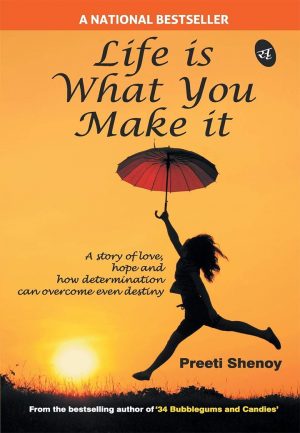At the dawn of the next world war, a plane crashes on an uncharted island, stranding a group of schoolboys. At first, with no adult supervision, their freedom is something to celebrate; this far from civilization the boys can do anything they want. Anything. They attempt to forge their own society, failing, however, in the face of terror, sin and evil. And as order collapses, as strange howls echo in the night, as terror begins its reign, the hope of adventure seems as far from reality as the hope of being rescued. Labeled a parable, an allegory, a myth, a morality tale, a parody, a political treatise, even a vision of the apocalypse, Lord of the Flies is perhaps our most memorable novel about “the end of innocence, the darkness of man’s heart.”











Kegan –
I didn’t like the book very much
Gerry –
I liked the book
Silvan –
This book is horrifying. I’m scared like hell. Totally.
I was expecting an adventure book telling about some children who got stranded in an island, but ended up with goosebumps.
A bit of synopsis: A number of English school boys suffered from a plane accident causing them to get stranded in an uninhibited island. The period was maybe during the World War II. Trying to be civilized, they elected a leader for themselves as well started the division of tasks (hunters, fire-watchers, etc). Things turned bad when there’s a power struggle between the group leaders, worsened by various sightings of a monster in the island. No, don’t think about “Lost” because this is way different.
No wonder I had goosebumps at the end, because this book is so true to what happens in the world today. When men tried to govern themselves (and started the whole process with goodwill inside), but blinded with egotism and lust for power, tragedy and destruction in society are inevitable.
Human nature is corrupt, it only takes a trivial thing to make its nature controlled by nothing but malice. This book represents a perfect allegory for men. Culture fails repeatedly and no matter how hard we can repress it, nothing will ever stop the drive to become savages.
Despite its length and easy-to-read narration, this is certainly one of the most haunting, powerful books I’ve ever read. Now I know why this book is listed in so many lists of greatest books in the 20th century
Nora –
I read this book a long time ago, long enough to where I barely remembered anything past the basic premise. So I picked it up again, only to wish I hadn’t. There’s a reason why they teach this book in middle school–in order to enjoy this book, one’s intellectual cognizance must be that of a child, because otherwise you’ll spend the entire time picking out everything that’s wrong with the book. And there’s a lot to pick out.
From what little of the story that is actually coherent, I can see why this book has had a lasting effect on social commentary since it’s initial publishing. The overlying illustration of how easily man can devolve back to his feral instincts is striking, yet could have been infinitesimally more effective in the hands of a decent writer.
See, I would have cared a bit more about the little island society of prepubescent boys and their descent into barbarism if you know, any of the characters had been developed AT ALL. Instead, we’re thrown interchangeable names of interchangeable boys who are only developed enough to conform to the basic archetypes Golding requires to hobble his little story along: The Leader, The Rebel, The Fat-Kid, The Nose-Picker, etc. Were he born in this time, I believe Golding would have done brilliantly as a scriptwriter for reality TV.
And the plot? There’s a plot? I’m guessing so, since things seem to happen, but it’s kind of hard to tell since he spends pages describing irrelevant events that are never incorporated, characters that possibly exist yet probably don’t, and using words that don’t mean what he thinks they mean. And as the main characters are a bunch of kids not worth caring about, thus goes the way of the story.
And the prose? Dear God, the prose! Get it away! It burns us!
So yeah, this book sucked. It had potential. There were even a few parts I internally squealed at in hopeful anticipation. But whatever potential it did have was hopelessly squandered by a man who wrote like he’d never written anything before in his life. Don’t waste your time.
Berry –
I liked
michael –
Great book
eve –
Awesome